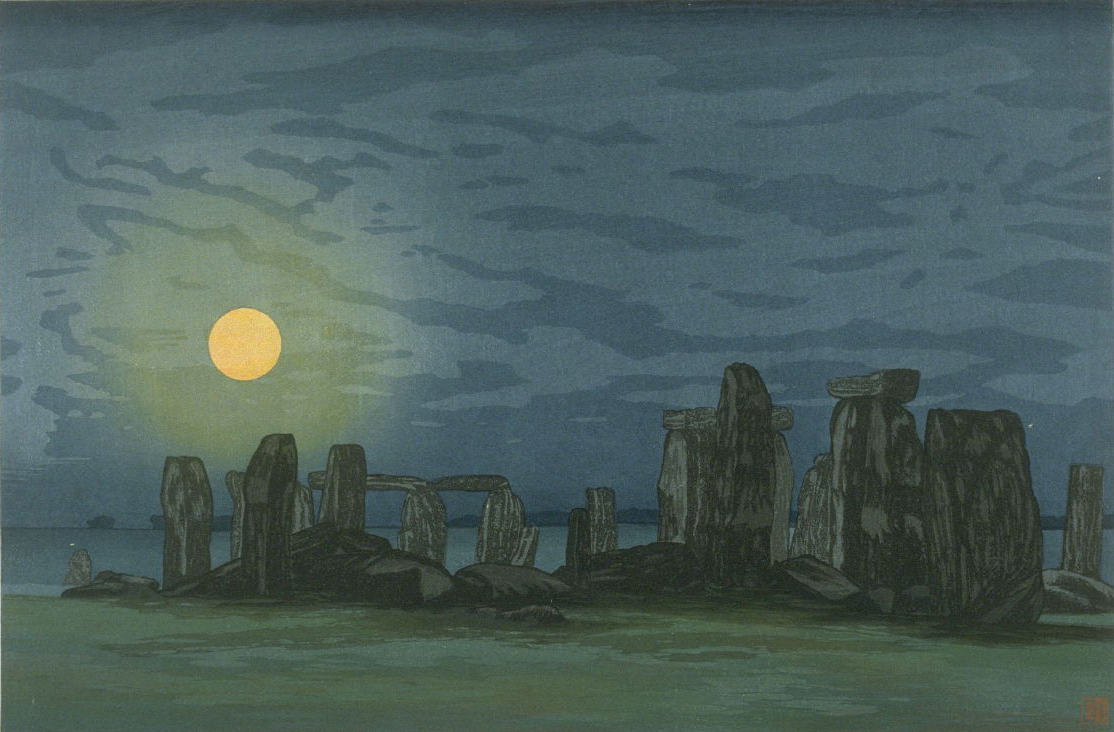
Stonehenge (Moonlight), by Yoshijiro Urushibara (Mokuchu), twentieth century. Fine Arts Museums of San Francisco, California State Library loan.
• Though he’d planned to bid on chairs, a barrister named Cecil Chubb walked away from a 1915 auction the new owner of Stonehenge: “I thought a Salisbury man ought to buy it, and that is how it was done.” (The Telegraph)
• The Paradise, the Wild, the Ruin, the Living Culture, or the Playground? Tourism scholars recognize five main types of summer vacation, each with its own complex history. (JSTOR Daily)
• Appalachian history written in (and by) the land. (Places Journal)
• Approved spellings from the New York Times’ 1928 stylebook included “aeronaut,” “calibre,” “fungous” for the adjective but “fungus” for the noun, “theatre,” and “unforgetable.” (Columbia Journalism Review)
• Archaeologists find evidence of seventeenth-century Danish diets—and parasites—inside two “poo-filled time capsules.” (Cosmos)
• One word: castration. (The Paris Review Daily)
• Charleston, South Carolina, apologizes for its role in American slavery: “At the very least, we can say we’re sorry.” (NPR)
• “A sort of aquatic peaceable kingdom”: the home aquarium as Victorian fad. (Public Domain Review)
• Does truth have an address? (Aeon)
• This week in obituaries: the Oxford scholar who rescued the philosophical reputations of Seneca and Cicero, a gentleman bank robber, and the hip-hop pioneer who rapped, “History is distorted ’cause it ain’t all there, so let’s examine the truth so we can clear the air.”